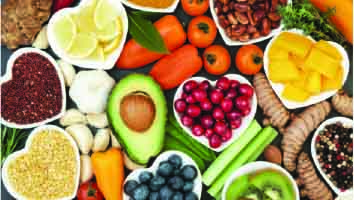By Awa Sowe
Non- Communicable Diseases (NCDs), including heart disease, stroke, cancer, diabetes and chronic lung disease, are collectively responsible for 74% of all deaths worldwide. More than three-quarters of all NCD deaths, and 86% of the 17 million people who died prematurely, or before reaching 70 years of age, occur in low- and middle-income countries.
The epidemic of NCDs poses devastating health consequences for individuals, families and communities, and threatens to overwhelm health systems. The socioeconomic costs associated with NCDs make the prevention and control of these diseases a major development imperative for the 21st century.
According to the World Health Organisation (WHO), Non- Communicable Diseases account for 34% of total annual mortality in The Gambia and kills 41 million people each year worldwide.
Unbalanced diet is a major factor to the prevalence of NCDs including increased blood pressure, a raised body Mass Index (BMI) and high blood glucose. Balanced nutrition plays a key role in keeping these indicators at healthy levels and reducing the risks of NCDs.
In response to the facts above, the National Nutrition Agency (NaNA) in collaboration with Food Safety and Quality Authority (FSQA) and Food Technology Service (FTS) recently organized forum to build capacities on the techniques and ways to prevent Non-Communicable Diseases (NCDs) and the processing of cereals in accordance with good hygienic practices; and on healthy foods.
Held at NaNA, the forum aimed at scaling up the fight against NCDs and its related diseases and advocacy on nutrition and healthy eating habbits.
During her presentation, Mrs Haddy Crookes, Senior Programme Officer at NaNA said that the modified behavioral factors that risk Non-Communicable Diseases are lifestyle, tobacco and alcohol use, while the intermediate risk factors, she noted, are blood lipids, blood pressure, blood glucose, overweight or obesity.
Ndey Awa Ceesay, founder and manager of Nature Gift Care, a natural food processing company, affirmed that the aim of the training was to expose participants on means of processing foods that can be beneficial for human consumption and also combat NCDs.
She advised her fellow participants to put to practice the acquired knowledge and serve as ambassadors in raising awareness.
MrYankuba Fatty, a participant, said he learned that safety and quality are the most important in dealing with anything that is consumable to avoid diseases. He thanked NaNA and partners for the initiative.
Isatou Fofana, a representative of Food Technical Service urged participants to utilise the knowledge gained by processing their own products in the best manner possible to promote healthy nutrition in The Gambia and avoid NCDs and its related diseases.
In addition , the food we eat has a large impact on our health. An unhealthy diet, typically high in sugar, saturated fat and salt and low in vegetables and fruits, can contribute to the development of non-communicable diseases. Examples of NCDs are diabetes, hypertension, heart disease and cancer. These are highly prevalent in South Africa and as a disease group, have become the largest killer in the country.
One of the things we can do to reduce the risk of developing NCDs is to eat a nutritious diet, ensuring that we include enough vegetables and fruits. The more processed foods are in our diet, the farther away we are from their natural state and are more likely to contain added ingredients that in the long run may be harmful to our health.






